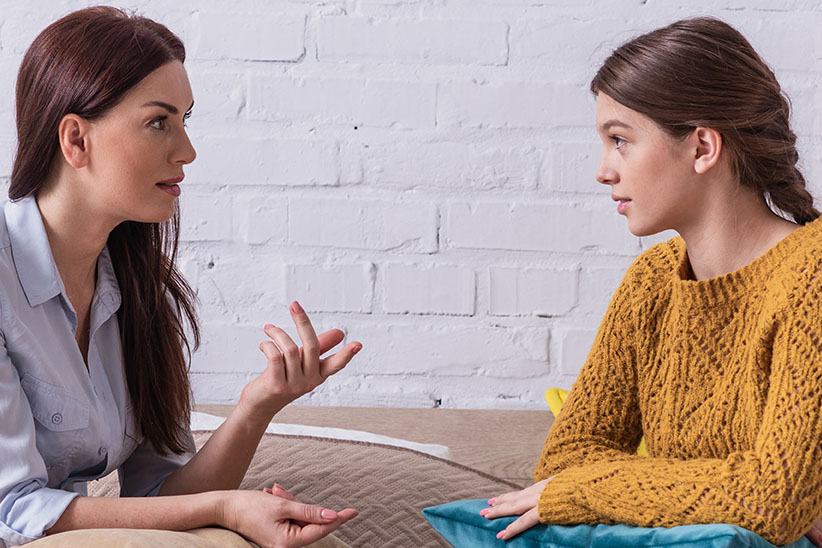
Going through a divorce can be a difficult and emotional experience for children, who may feel insecure, anxious, or angry. Co-parenting is one of the challenges that can arise during and after a divorce. It can be challenging for both parents to communicate and make decisions when raising the children. Still, it is essential to remember that the well-being of your children should be the top priority.
How Does Divorce Impact Children and How Can Therapy Assist?
Divorce can significantly impact children's emotional well-being and sense of security. They may experience various emotions, including sadness, anger, confusion, and fear. Children may also struggle to adjust to changes in their daily routines and living arrangements.
Therapy can play a crucial role in helping children cope with the challenges of divorce. A skilled therapist can provide a safe space for children to express their feelings, work through their emotions, and develop healthy coping strategies. Therapy can also help children understand that the divorce is not their fault and that both parents still love them.
Signs Your Child May Be Struggling with Divorce
While some adjustment difficulties are to be expected, if your child exhibits excessive crying, mood swings, behavior issues, difficulty in school, changes in sleeping or eating patterns, concentration issues, irritability, or social challenges, you may want to consider having them see a child or adolescent therapist.
What Are Effective Co-Parenting Strategies During Divorce?
Effective co-parenting during and after divorce is essential for providing children with a stable and supportive environment. Here are some strategies to help you navigate co-parenting:
- Reassure your children that both parents love them, even if they no longer live together.
- Explain that the divorce was not the result of anything they did or bad behavior.
- Remember that even though you and your ex are no longer a couple, you are still and will always be parents together. Co-parenting has been shown to help children adjust to their new situation.
- As much as possible, keep the rules for the two households the same or similar.
- Avoid talking badly about the other parent to your children, no matter how frustrated or upset you are. Talk to friends/family or seek professional help if you are struggling.
Tools and Tips for Healthy Co-Parenting
- Maintain consistent routines and boundaries for your children, as this helps them feel safer and more secure.
- Encourage your child to keep up their routines and visit friends to maintain a sense of continuity and normalcy.
- Communicate with your child's teacher(s) about the situation so they can offer support and monitor your child's well-being at school.
- Use a co-parenting app or shared calendar to streamline communication and keep track of important dates and events.
- Consider attending co-parenting therapy or workshops to improve communication and collaboration with your ex-partner.
Can Individual Therapy Help During and After Divorce?
In addition to therapy for children, individual therapy can be highly beneficial for parents going through a divorce. Divorce is a significant life transition that can bring up a range of complex emotions, including grief, anger, and uncertainty about the future.
Benefits of Individual Counseling During Divorce
Individual counseling can provide a supportive space to process these emotions, develop coping strategies, and navigate the challenges of single parenting and co-parenting. A therapist can help you:
- Work through feelings of grief, loss, and anger in a healthy way
- Develop effective communication and conflict-resolution skills
- Establish healthy boundaries and self-care practices
- Address any underlying mental health concerns, such as depression or anxiety
- Build a strong support system and create a vision for your new life post-divorce
Divorce is unquestionably difficult for both parents and children. However, if children continue to feel loved by both parents and parents maintain a calm, stable environment, they will be able to adjust more easily. Over time, they will adapt to their parents' living apart in separate households. With the proper support and resources, families can navigate the challenges of divorce and emerge stronger and more resilient.
Getting Help for You and Your Child During Divorce
If you are a parent going through a divorce and are concerned about your own well-being or your child's emotional health, please don't hesitate to reach out. As a licensed therapist, I provide individual therapy to both children and parents who are navigating the challenges of divorce. While I do not offer couples counseling, I am here to support you and your child individually throughout this difficult time. You can fill out the contact form below or call me at 818-403-5439 to schedule an appointment. I offer both in-person therapy at my office in Agoura Hills, CA, and virtual therapy sessions for individuals located anywhere within the state of California. I provide in-person therapy to patients in Agoura Hills and the surrounding areas, including Westlake Village, Oak Park, Calabasas, Thousand Oaks, Woodland Hills, and Simi Valley.